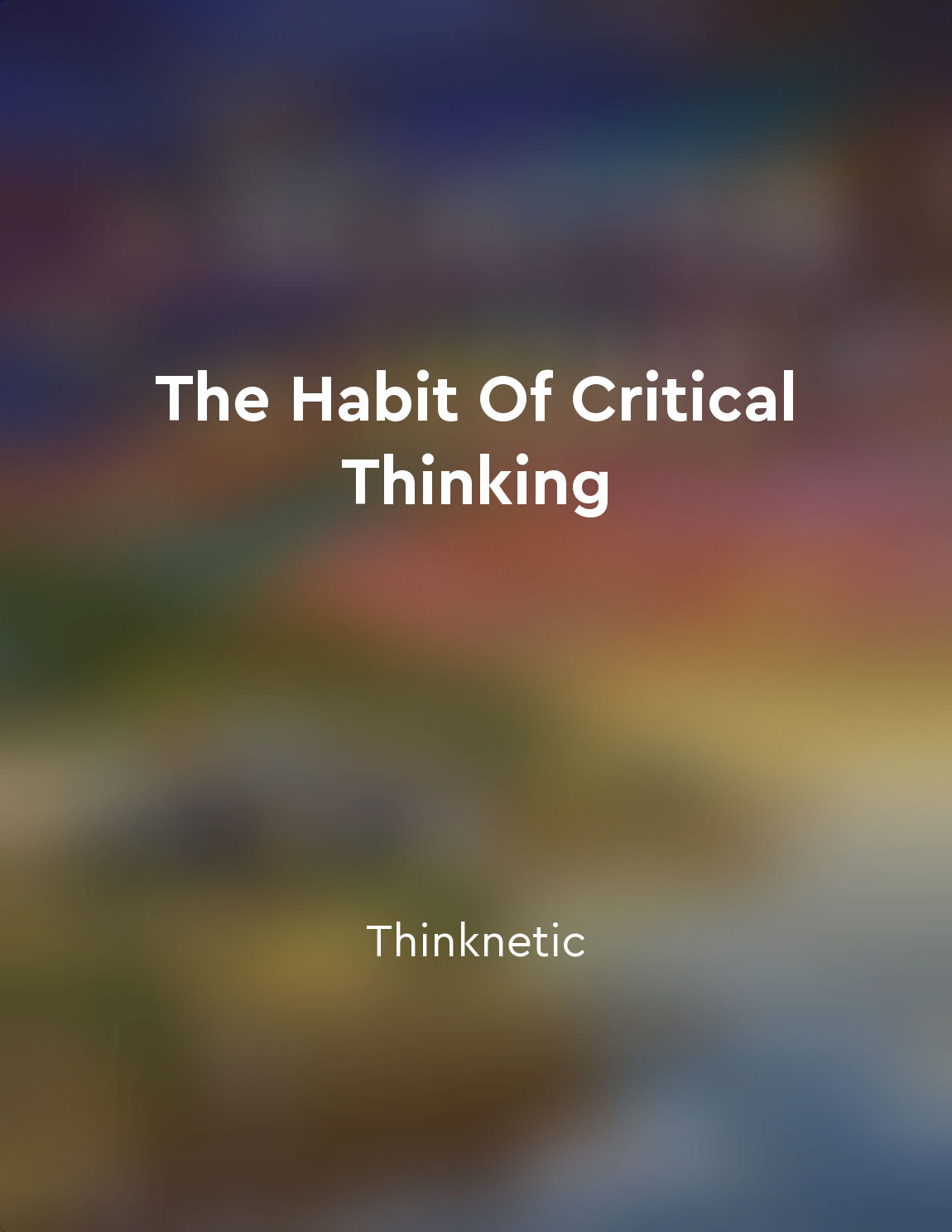Avoid making assumptions about others from "summary" of THINK BEFORE by Peter Malcolm James
When we make assumptions about others, we are essentially jumping to conclusions without any concrete evidence. This can lead to misunderstandings, conflicts, and strained relationships. It is important to remember that everyone has their own unique experiences, perspectives, and motivations that influence their actions. By making assumptions, we are discounting the complexity of human behavior and reducing individuals to simplistic stereotypes. Assumptions are often based on limited information or biased perceptions. We may assume that someone is unfriendly because they do not smile often, when in reality they may be dealing with personal struggles or simply have a reserved personality. By failing to consider alternative explanations for someone's behavior, we risk misjudging them and missing out on meaningful connections. Furthermore, making assumptions can be harmful not only to others but also to ourselves. When we assume negative intentions or qualities in others, we are projecting our own insecurities and biases onto them. This can create a self-fulfilling prophecy where our assumptions influence how we interact with others, leading to a cycle of negativity and mistrust. To avoid making assumptions about others, we must practice empathy and open-mindedness. Instead of jumping to conclusions, we should seek to understand the reasons behind someone's behavior by asking questions, listening actively, and withholding judgment. By approaching interactions with curiosity and a willingness to learn, we can cultivate deeper relationships based on mutual respect and understanding.- By refraining from making assumptions about others, we can foster a more compassionate and inclusive world where individuals are seen and accepted for who they truly are. It is only through genuine engagement and a commitment to seeing beyond surface-level appearances that we can break free from the constraints of assumptions and embrace the richness of human diversity.
Similar Posts
Seek understanding and resolution rather than placing blame
When faced with a confrontation, it is crucial to shift the focus from assigning blame to seeking understanding and resolution....
Social influence can lead to conformity or obedience
Social influence is a powerful force that can shape our behavior in various ways. One of the ways in which social influence man...

Emphasize precision
When it comes to critical thinking, one of the key concepts to keep in mind is the importance of precision. Precision refers to...
Change blindness can make significant alterations go unnoticed
Imagine this scenario: you are watching a magician perform a trick. He waves his hand and suddenly a coin disappears into thin ...
Recognize the signs of toxic personalities in your life
When dealing with toxic personalities, it is crucial to be able to recognize the signs and patterns of their behavior. One of t...
Adapt your message to your audience
When communicating with others, it is crucial to consider who your audience is and tailor your message accordingly. This means ...

Listening actively is an important aspect of mind reading
To truly understand the thoughts and emotions of others, one must possess the ability to listen actively. Active listening invo...
Establish rapport through mirroring and matching
Establishing rapport through mirroring and matching involves subtly mimicking the behavior of the person you are interacting wi...
Doubt is a necessary component of critical thinking
In the pursuit of knowledge, doubt plays a crucial role in shaping our critical thinking abilities. It is through the act of qu...

Conflict can often be avoided by being aware of communication differences
Understanding communication differences is crucial in preventing conflicts. Different personality types have distinct ways of c...

